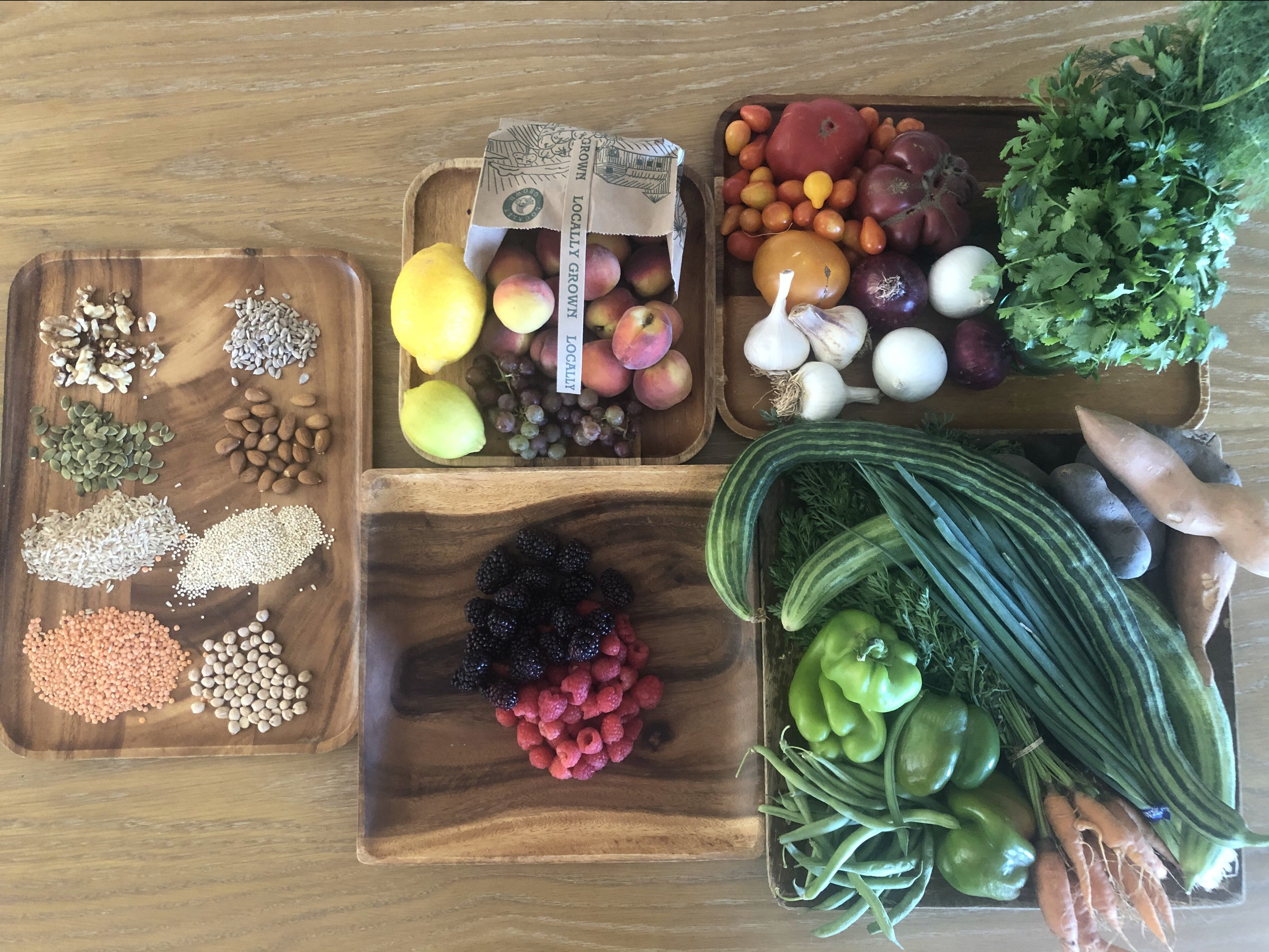The plant-based shopping list is inspired by the anti-inflammatory way of eating, the Mediterranean Diet, and the Blue Zones where people around the world live the longest healthiest lives.
Learn to Cook. This whole food shopping list is based on staples to cook, simple, delicious meals.
Go Slow. I do recognize that we are all at different levels of cooking knowledge and skill levels. If you are new with cooking, buy what you can and feel comfortable from the shopping list. Do not overwhelm yourself. Go slow to gradually learn some new cooking skills into your life that may last the rest of your life.
Shopping List Guide. I personally use this shopping list as a guide and invite you to shop for what you can in your own area and based on your personal level of cooking.
For a visual of my personal pantry, visit the Experience Nutrition You Tube Channel, and subscribe for other cooking videos.
Key Shopping Categories
Use the Shopping List as a guide for the ingredients to stock your pantry in the following food categories.
- Fresh Produce: Veggies & Fruit
- Whole Grains
- Beans & Legumes
- Whole Grains
- Nuts & Seeds
- Extra Virgin Olive Oil
- Fresh Herbs
- Seasonings / Sea Salt
- Dry Goods
Fresh Produce
Roots
Enjoy root veggies a few simple ways: Roast, Steam, Sauté, and even Raw.
- Carrots
- Beets
- Sweet potatoes
- Radishes
Greens & Veggies
We can enjoy nutrient-rich greens in side dishes, soups, and veggie bowls.
- Dark leafy greens: Kale, collards, arugula, spinach
- Broccoli
- Cauliflower
- Celery
- Lettuce
- Tomatoes
- Bell peppers
- Your favorites

Fruit
- Bananas (freeze some for smoothies)
- Apples
- Lemons, limes (important for salad dressings)
- Avocados
- Dates
- Your favorite fruits, for snacking
- Frozen fruit: Mixed or separate berries, such as blackberries, blueberries, cherries, raspberries, strawberries

Whole Grains
Choose a few different types of whole grains and enjoy them for for breakfast, as side dishes, or in a Veggie Bowl.
- Brown rice
- Quinoa
- Steel cut oats
- Rolled oats

Dried Beans & Legumes
I totally recommend dried beans as they are much more affordable than canned beans and taste better, as well. Buy a few pounds of dried beans and lentils to be used to make hummus, tossed in a salad, soup.
Experiment with a few different beans and legumes, such as:
- Garbanzo beans (chickpeas)
- Green lentils
- Red lentils
- Black beans
- Pinto
- Kidney
- Tepary Beans (especially if you’re in Arizona)

Nuts & Seeds
Nuts and seeds are rich in protein and healthy fats and can be eaten as snacks, made into nut milk, used in smoothies, toppings in salads, and delicious raw desserts.
Buy a variety of raw organic nuts and seeds, such as:
- Almonds
- Cashews (great for desserts!)
- Pecans
- Walnuts
- Pumpkin seeds
- Sunflower seeds
- Hemp seeds
- Chia seeds (for smoothies)

Extra Virgin Olive Oil
Buy a high-quality olive oil. Organic, First-pressed, Cold Pressed. Less than .8 percent acid. Use olive oil in salad dressings and cooking to add flavor to your dishes. Personally, I use olive oil almost every day and believe it is a must in our kitchen all the time.

Fresh Herbs
Purchase a few herbs, available at your local farmers markets, or garden, or grocery stores. Use the herbs to add flavor to all kinds of veggie dishes.
- Parsley
- Basil, dill, oregano, marjoram

Seasonings
The top seasoning is sea salt or Himalayan salt. Salt brings out or enhances the flavor of whatever we cook. I use coarse Celtic sea salt and hand-grind it in a mortar and pestle for cooking.
A few basic seasonings you can use now while we are “at home” and continue to cook with in the future.
- Dried Mediterranean herbs: Combination or separate herbs, such as basil, oregano, marjoram, thyme
- Seeds: Cumin (for hummus and soups)
- Dried Mexican spices: Any kind of peppers, such as chili, ancho, chipotle
- Dried spices: Cinnamon (key); Extras: nutmeg, cardamom

Dry Goods
Other extra foods to stock your pantry.
- Coconut water (for smoothies)
- Vinegar: Any kind for salad dressings, such as balsamic, red wine, rice, apple cider
- Stone-ground mustard (for salad dressings)
- Coconut oil. Virgin, unrefined (for desserts)
- Extras: Olives and goji berries (my favorite extras)
Shopping List Guide. I invite you to use this shopping list as a guide to shop for what you can in your own area and based on your personal level of cooking.
Cooking Videos. I’ll keep you posted on new, whole foods, plant-based cooking videos on my Experience Nutrition You Tube Channel, so you can actually see how to prepare dishes with the basic foods in the shopping list.
Share on Facebook. Finally, please reach out to me with any questions on my Facebook page: www.facebook.com/ExperienceNutritionAZ
By Melanie Albert, Plant-Based Cooking Leader, Founder & CEO, Experience Nutrition in Phoenix, Arizona. Award-winning cookbook author, speaker, corporate wellness, team building, retreat leader, and caterer.
Interested in enjoying a weekend of healthy plant-based cooking in beautiful Sedona, Arizona?
We have just, with careful consideration in light of the Coronavirus Pandemic, confirmed the Sedona Plant-Based Cooking & Self-Care Retreat on November 13-16, 2020.
Click to learn more about the retreat and to enjoy photos of our Fall 2019 Retreat








Leave a Reply